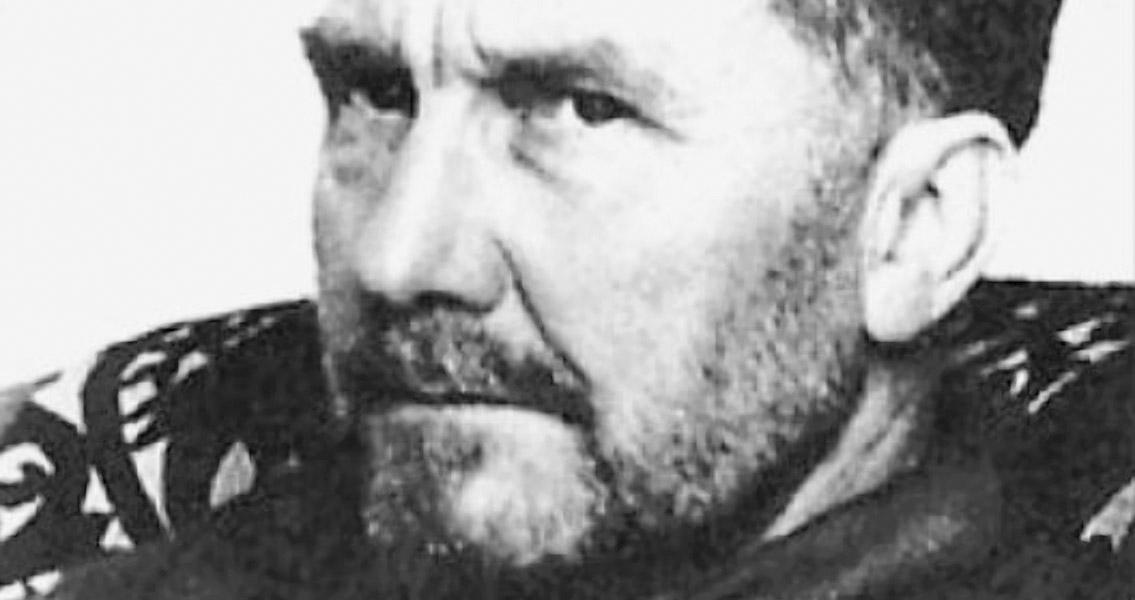<![CDATA[On 18th April, 1958, a federal court ruled that Ezra Pound should be released from St. Elizabeth's Hospital for the criminally insane in Washington D.C. The poet, widely regarded as one of the most influential of the twentieth century, had been incarcerated for thirteen years. "(Ezra Pound) is more responsible for the twentieth-century revolution in poetry than is any other individual." wrote T.S. Elliot in 1935, in an introduction to a compilation of Pound's works he had curated. Instigating new ideas of form, structure and style, Pound was a pioneer in the formation of modern poetry, his influence also extending into other art forms. The narrative of an artist not appreciated in their own time is of course a familiar one, and it is perhaps no surprise that it came to apply to Pound's unique work, the writer enjoying only modest commercial success in his lifetime. More alienating than Pound's unconventional poetic techniques however, were his publicly pro-fascist sympathies during the 1930s and 1940s. Pound was born in Haily, Idaho in 1885. He studied literature and languages at college before leaving for Europe in 1908, making the journey with just $80 in his wallet and dreams of forging a career on the continent as a poet. He slowly built a name for himself, and in 1909 had three books published, 'Personae', 'Exultations' and 'The Spirit of Romance', which all received a warm critical reception. At the same time he built a reputation as a literary reviewer and critic, becoming an influential taste setter in both the USA and UK. In the years between the World Wars, Pound's career continued to flourish, and he focused his attentions on the long form poem he had started in 1915, The Cantos. Combining memories, feelings and impressions from the poet’s life alongside fragments of other literature, the poem was also remarkable for revealing his growing interest in history and politics. Perhaps responding to the massive upheavals that had befallen Europe in the First World War and the decades leading to the Second, Pound became increasingly obsessed with economic history. In particular, he came to believe that misunderstanding of the financial system by governments and the general population was allowing international bankers to take advantage. This, he believed, was the main cause of war in the world. Pound’s world view ultimately led him to support Italian dictator Benito Mussolini. In 1939 he returned home to the USA, hoping he could prevent his home country going to war against the Axis powers. He soon realised he wouldn’t be able to achieve his goal, and set off for Rome. He recorded hundreds of radio broadcasts for Rome Radio, praising Mussolini, criticising the USA, and claiming that the war was the result of a Jewish conspiracy. A belief that a fascist state was the most fertile for the creation of art was another key idea behind Pound’s support for Il Duce. In 1943 Italy was invaded by the Allies, and Pound was handed over to the US forces in 1945, who soon flew him back home to stand trial for treason. He was declared insane however, and sent to St. Elizabeth’s Hospital. His incarceration lasted for close to thirteen years, but it failed to stem his creativity. He continued work on The Cantos, publishing two more volumes of what had become his life’s work, and translated works of Chinese poetry. Pound stayed visible to the public throughout his time at St. Elizabeth’s, controversially winning the Bollingen Prize while also receiving visitors and maintaining correspondence with the outside world. On 18th April 1958, Pound was declared unfit to stand trial, and all charges against him were dropped. Then, as now however, Pound’s mental state was a cause of significant controversy, with many questioning whether he was really insane. In the 1980s, a decade after Pound’s death, a series of articles were published by psychiatrists with access to newly released records, claiming that Pound had in fact been sane all along. “The Pound case is one of the earliest and most flagrant examples of the ongoing abuse of psychiatry in the American criminal-justice system. For it seems clear that one man, Dr. Overholser, decided that Pound should not stand trial for treason and then singlehandedly engineered the testimony that led to his hospital confinement.” wrote Dr. Fuller Torrey in a Psychiatry Today article in 1981, suggesting that almost every doctor who examined Pound considered him sane. After his release, Pound returned to Italy where he lived until his death in 1972. While back in Europe, he publicly declared the whole of the USA to be an ‘insane asylum’, and performed a fascist salute in public several times. Pound was a pioneer of modern literature who vocally supported the most abhorrent political idea of the twentieth century, a renowned critic who inspired debates on the very nature of sanity. Before he died he never finished The Cantos, leaving behind a sprawling, unpredictable and uncategorisable work which seems an accurate testimony to his remarkable life. This article was updated on 18th April 2016. The original wrongly suggested that Italy was invaded by the Allies in 1945, rather than 1943.]]>
Ezra Pound, The Poet Who Supported Mussolini, is Released
